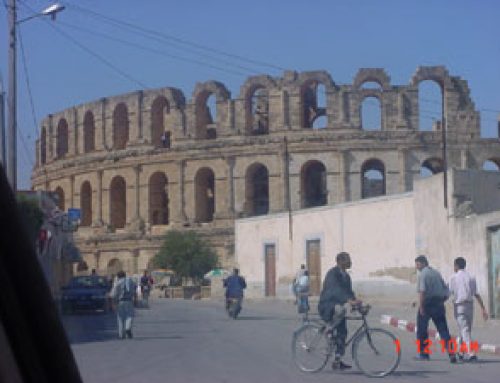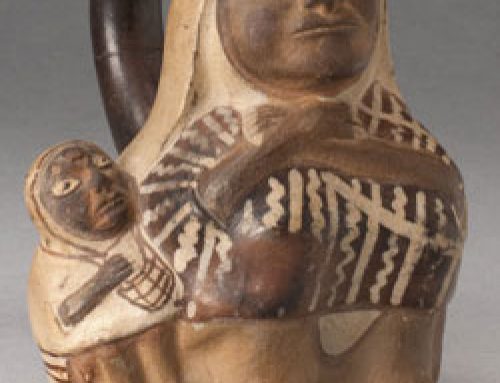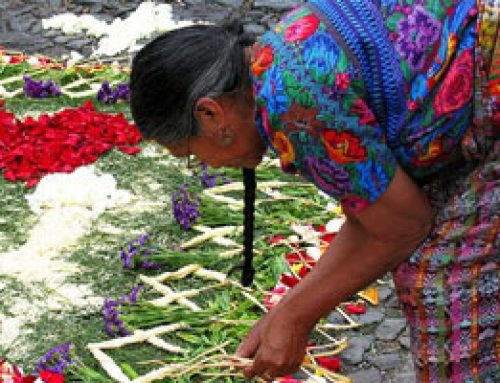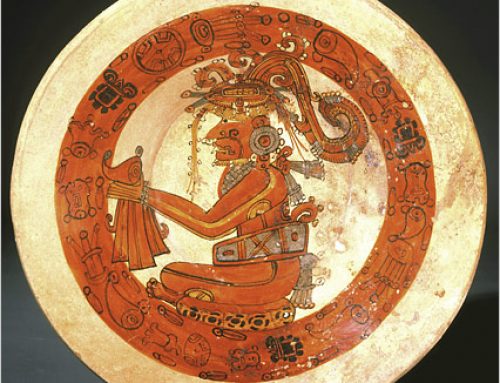
Just a loaf of bread
This is a story we only know because Ovid wrote it down in his poem, the Metamorphoses. It might be a traditional Greek story, but we don’t know it from anywhere else.
In this story, Philemon and Baucis are poor people who live out in the countryside in an area called Tyana, in modern Turkey. The gods Zeus and Hermes come to their village in disguise, to test it and see whether the people who live there are good or bad. As it turns out, the people of the village are bad. Nobody will give Zeus or Hermes any food, or let them stay the night in their house. People see them coming and bar their doors, and pretend not to be home.

Wild figs
But finally Zeus and Hermes get to the house where Philemon and Baucis (BOW-kiss) live. Even though Baucis and her husband Philemon barely have enough to eat themselves, they are happy to share their plain bread and fruit and wine with their guests.
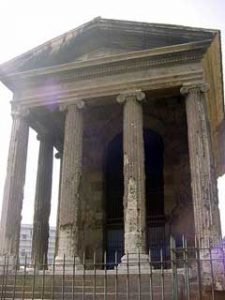
A victory temple from Republican Rome
When Baucis notices that the wine jug keeps filling itself up again, she realizes that their guests are really gods. Philemon gets all excited and offers to kill their only goose to feed the gods, but Zeus stops him and says it’s okay. Zeus tells Philemon and Baucis to run out of town, up to the top of a hill, and then he destroys the town with a big flood, to wash away all the evil there. Zeus also turns Baucis and Philemon’s little hut into a beautiful stone temple. In the end, Baucis and Philemon stay at the temple as its guards, and Zeus grants their wish to die at the same time and be turned into trees, one on either side of the door of the temple.
You might want to compare this story to the story of Sodom and Gomorrah from the Bible, or the story of Anansi and the Turtle from West Africa. How are these stories the same? How are they different?
